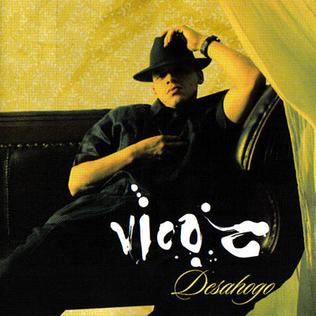The Grammy Award for Best Latin Pop Album is an award presented at the Grammy Awards, a ceremony that was established in 1958 and originally called the Gramophone Awards, to recording artists for releasing albums in the Latin pop genre. Honors in several categories are presented at the ceremony annually by the National Academy of Recording Arts and Sciences of the United States to "honor artistic achievement, technical proficiency and overall excellence in the recording industry, without regard to album sales or chart position".
The Grammy Award for Best Latin Jazz Album is an award presented at the Grammy Awards, a ceremony that was established in 1958 and originally called the Gramophone Awards, to recording artists for quality works in the Latin jazz music genre. Honors in several categories are presented at the ceremony annually by the National Academy of Recording Arts and Sciences of the United States to "honor artistic achievement, technical proficiency and overall excellence in the recording industry, without regard to album sales or chart position".
The Grammy Award for Best Mexican/Mexican-American Album was an award presented to recording artists for quality albums in the Mexican music genre at the Grammy Awards, a ceremony that was established in 1958 and originally called the Gramophone Awards. Honors in several categories are presented at the ceremony annually by the National Academy of Recording Arts and Sciences of the United States to "honor artistic achievement, technical proficiency and overall excellence in the recording industry, without regard to album sales or chart position".

Marco Antonio Solís Sosa is a Mexican musician, singer, composer, and record producer.
The Latin Grammy Award for Record of the Year is an honor presented annually at the Latin Grammy Awards, a ceremony that recognizes excellence and creates a wider awareness of cultural diversity and contributions of Latin recording artists in the United States and internationally. The award is given to the performers, producers, audio engineers and mastering engineer for new songs in Spanish or Portuguese language. The songs included on an album released the previous year of submission are also eligible only if they have not been submitted to competition before. Instrumental songs are also eligible. Due to the increasing musical changes in the industry, from 2012 the category includes 10 nominees, according to a restructuration made by the academy for the four general categories: Song of the Year, Album of the Year, Best New Artist and Record of the Year.
The Latin Grammy Award for Album of the Year is an honor presented annually at the Latin Grammy Awards, a ceremony that recognizes excellence and creates a wider awareness of cultural diversity and contributions of Latin recording artists in the United States and internationally. The award is given to the performers, producers, audio engineers and mastering engineers for vocal or instrumental albums with 51 percent of new recorded songs. Albums of previously released recordings, such as reissues, compilations of old recordings and greatest hits albums packages are not eligible. Due to the increasing musical changes in the industry, from 2012 the category includes 10 nominees, according to a restructuration made by the academy for the four general categories: Song of the Year, Record of the Year, Best New Artist and Album of the Year. Beginning in 2018, songwriters are eligible for the accolade if 33% of the playing time are composed by them.

Desahogo is the seventh studio album released by Puerto Rican singer Vico C. It was released by EMI Latin on March 1, 2005 and is the follow-up of En Honor a la Verdad(2003).The album blends and funsion rap with traditional tropical music such as reggae, cuban guaijra, vallenato and salsa along with R&B and Reggaeton with raging lyrics from protest about political corruption,consumerism and social criticism to love, regrets, and romanceAccording the artist, it is his most complete album. It features guest appearances by Eddie Dee, Gilberto Santa Rosa, Cultura Profetica, Mala Rodriguez, Ivy Queen and D`Mingo. Initially the album was set to be released on February 15, 2005. However, it was delayed due some recorded material were lost and later recovered.
The Latin Grammy Award for Best Urban Music Album is an honor presented annually at the Latin Grammy Awards, a ceremony that recognizes excellence and promotes a wider awareness of cultural diversity and contributions of Latin recording artists in the United States and internationally. According to the category description guide for the 13th Latin Grammy Awards, the award is for vocal or instrumental merengue house, R&B, reggaeton and rap music albums containing at least 51 percent playing time of newly recorded material. The award was first presented as the Best Rap/Hip-Hop Album until it received its current name, Best Urban Music Album, at the 5th Latin Grammy Awards ceremony in 2004.
Los Pikadientes de Caborca are a Mexican musical group whose debut single, "La Cumbia del Río", charted on the Billboard Hot Latin Tracks in 2008.
The Latin Grammy Award for Producer of the Year is an honor presented annually at the Latin Grammy Awards, a ceremony that recognizes excellence and creates a wider awareness of cultural diversity and contributions of Latin recording artists, in the United States and internationally. The award is given to a producer whose recordings released during the eligibility period represent extraordinary creativity in the area of record production. Six individual songs, or 51% of the duration of an album, are the minimum for a producer to be eligible. Two or more producers can participate as a team only if they have worked together during the period of eligibility.
The 2009 Billboard Latin Music Awards was held on Thursday, April 23, 2009 at the BankUnited Center at the University of Miami in Coral Gables, Florida. It is produced and broadcast lived on Telemundo network. The nominees were announced on Tuesday, February 17, 2009 during a live televised morning show Levantate on Telemundo network.

A Son de Guerra, sometimes referred to as Asondeguerra, is the 11th studio album recorded by Dominican singer-songwriter Juan Luis Guerra, It was released by Capitol Latin on June 8, 2010. The album contains 11 tracks, and its musical structure and production are based on Merengue, Bachata, Son, Salsa, experimenting and incorporating elements of jazz, blues, funk, cumbia, rock, reggae, rap, and mambo. Lyrical themes on the album include protest against political corruption, immigration, love and romance. Featured appearances include Juanes and Chris Botti. For many fans and critics alike, it's his album with the most social content and strong social criticism since his 1992's Areito.
The Lo Nuestro Award for Regional Mexican New Artist of the Year was an honor presented annually by American network Univision. It was first awarded in 1989 and has been given annually since to recognize the most talented performers of Latin music. The nominees and winners were originally selected by a voting poll conducted among program directors of Spanish-language radio stations in the United States and also based on chart performance on Billboard Latin music charts, with the results being tabulated and certified by the accounting firm Deloitte. At the present time, the winners are selected by the audience through an online survey. The trophy awarded is shaped in the form of a treble clef.

Julio César Álvarez Montelongo, better known as Julión Álvarez, is a Mexican singer. Álvarez has been nominated for a Grammy Award and two Latin Grammy Awards.

Hasta la Raíz is the fifth studio album by Mexican recording artist Natalia Lafourcade, released on March 17, 2015, through Sony Music Mexico. After the success of her previous album, Mujer Divina – Homenaje a Agustín Lara, a tribute to Mexican singer-songwriter Agustín Lara, Lafourcade decided to record an album with original recordings. Lafourcade spent three years writing the songs and searching for inspiration in different cities, resulting in songs that express very personal feelings regarding love. The record was produced by Lafourcade, with the assistance of Argentinian musician Cachorro López and Mexican artist Leonel García.

Des/Amor is the fifth studio album from Mexican Latin pop group Reik, released on June 17, 2016, through Sony Music Latin. The album received a nomination at the 17th Annual Latin Grammy Awards for Best Contemporary Pop Vocal Album and the Lo Nuestro Award for Pop Album of the Year.
El Sonidito is a 2008 Latin album by the Hechizeros Band known for its title track.






